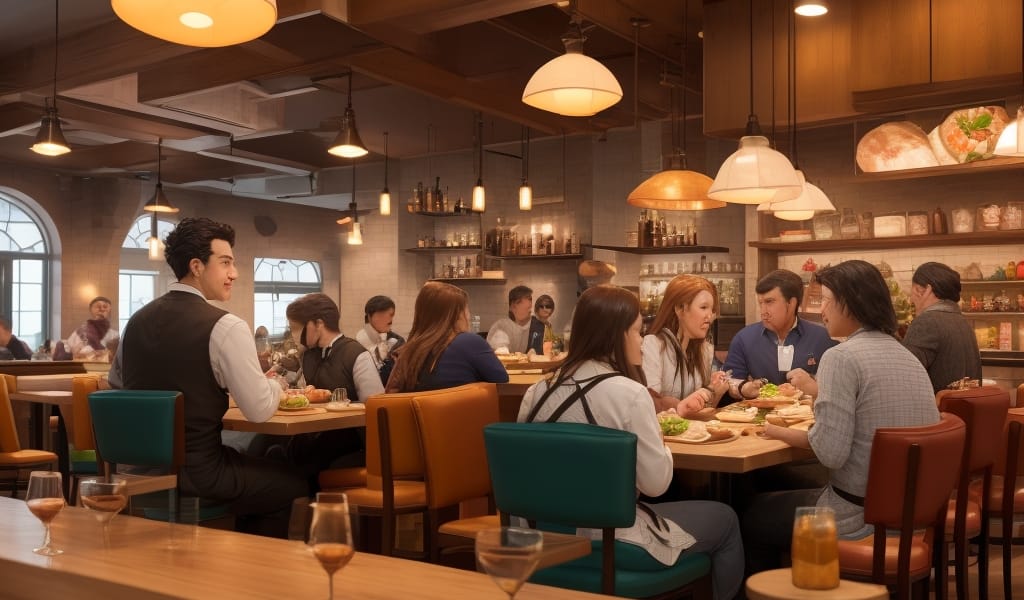Key Takeaways:
- Prioritize customer experience to foster brand loyalty and build a strong restaurant community.
- Engage with your customers regularly through social media, feedback surveys, and in-person interactions.
- Organize special events or unique experiences that will make your restaurant memorable and encourage customers to return.
- Implement a loyalty program to reward regular customers and create a sense of belonging to your restaurant community.
- Regularly communicate your brand’s values and mission to your customers, making them feel a part of your restaurant’s story.
How to Build a Community Around Your Restaurant Brand
In today’s competitive restaurant industry, serving great food is just the start. What truly sets successful restaurants apart is their ability to cultivate a loyal community of customers who actively engage with the brand. Building such a community not only enhances brand loyalty but also drives repeat business, word-of-mouth marketing, and overall customer satisfaction. So, how can restaurant owners and managers foster genuine relationships that turn casual diners into passionate brand advocates?
Why a Restaurant Community Matters
Creating a vibrant community around your restaurant brand goes beyond boosting sales. It creates an emotional connection with your customers, fostering brand loyalty and driving long-term business success. Engaged customers become your best advocates, enthusiastically sharing their positive experiences with friends, family, and online communities.
Restaurants that successfully build communities often see:
- Increased customer retention and repeat visits
- Enhanced brand reputation and trust
- Greater organic reach through word-of-mouth marketing
- Higher customer lifetime value (CLV)
Define Your Restaurant’s Brand Identity
Before building a community, clearly define your restaurant’s personality, values, and unique selling points. A strong brand identity sets the foundation for meaningful engagement and helps attract customers who resonate with your vision.
Clarify Your Core Values and Mission
Identify what your restaurant stands for and what makes it special. Whether it’s sustainability, authentic cuisine, local sourcing, or exceptional hospitality, clearly communicate these values through all customer touchpoints. Customers who align with your values are more likely to engage deeply with your brand.
Develop a Consistent Brand Voice
Consistency is crucial when engaging your community. Establish a clear, recognizable brand voice across your marketing channels, website, social media, and in-restaurant interactions. Whether your brand voice is formal, casual, witty, or informative, consistency builds trust and familiarity among customers.
Leverage Social Media Platforms Effectively
Social media channels are powerful tools for building restaurant communities. By leveraging platforms like Instagram, Facebook, TikTok, and Twitter effectively, you can reach a broader audience, foster engagement, and create meaningful connections.
Share Engaging Content Regularly
Regularly posting engaging content keeps your restaurant top-of-mind and encourages interaction. Examples include:
- Behind-the-scenes glimpses of your kitchen and staff
- Customer-generated content and testimonials
- Special offers and exclusive promotions
- Live cooking demonstrations or Q&A sessions
Encourage User-Generated Content and Interaction
Invite your customers to share their experiences through photos, videos, or stories using specific branded hashtags. Acknowledge and repost user-generated content to show appreciation and encourage ongoing participation. This approach strengthens relationships and fosters brand loyalty.
For example, Shake Shack regularly shares customer photos on their Instagram feed, creating a sense of community and appreciation among their followers.
Create Unique Experiences and Events
Providing unique, memorable experiences is an effective way to build lasting relationships with customers. Special events and experiences encourage deeper engagement and help your restaurant stand out from competitors.
Host Exclusive Events and Gatherings
Consider hosting exclusive events such as wine tastings, cooking classes, or chef’s tables. These intimate gatherings make customers feel special, deepen their connection to your brand, and encourage them to invite friends and family.
Collaborate with Local Businesses and Influencers
Partnering with local businesses or influencers can broaden your community reach and attract new customers. Collaborations expose your brand to new audiences and create mutually beneficial relationships within your local area.
For instance, a local restaurant partnering with a nearby craft brewery for a pairing dinner event can attract customers from both businesses, fostering community spirit and cross-promotion.
Implement Loyalty and Reward Programs
Loyalty programs incentivize customers to return and engage more frequently with your brand. Rewarding your customers encourages repeat visits, strengthens brand loyalty, and creates positive customer experiences.
Offer Meaningful Rewards
Design loyalty incentives that resonate with your customers, such as discounts, exclusive menu items, birthday rewards, or early access to special events. Meaningful rewards show appreciation and encourage customers to remain engaged with your restaurant community.
Personalize Customer Experiences
Use customer data from your loyalty program to create personalized experiences. Tailored promotions, personalized greetings, and remembering customer preferences enhance engagement and foster stronger emotional connections.
Starbucks’ popular rewards program is a great example, offering personalized deals and free items on special occasions, significantly boosting their customer engagement and loyalty.
Encourage Feedback and Actively Listen
Actively soliciting and responding to customer feedback demonstrates your commitment to their experiences and builds trust within your community. Encouraging open dialogue helps you understand customer expectations and continuously improve your offerings.
Invite Reviews and Feedback Regularly
Encourage customers to leave reviews through email follow-ups, on-site signage, or social media prompts. Regularly asking for feedback ensures customers feel valued and heard, strengthening their connection to your restaurant brand.
Respond Promptly and Authentically
Always respond to feedback in a timely, genuine manner. Whether addressing positive feedback or resolving complaints, authentic interactions build credibility and show your community you care deeply about their experiences.
Chipotle actively engages with customers on social media, responding swiftly to both positive and negative feedback, reinforcing their commitment to customer satisfaction and brand loyalty.
Support Community Initiatives and Causes
Aligning your restaurant with local community initiatives or charitable causes demonstrates social responsibility and positions your brand positively within your local community. Supporting meaningful causes encourages customers to engage more deeply, knowing their patronage contributes positively.
Participate in Local Events and Charities
Actively engage in local events, sponsor charitable initiatives, or collaborate with community groups. These actions enhance your restaurant’s reputation and foster goodwill among your customers.
Showcase Your Community Involvement
Highlight your community contributions through social media posts, newsletters, or in-store communications. Customers appreciate transparency and are more likely to support businesses actively participating in making a positive community impact.
Conclusion
Building a loyal community around your restaurant brand requires thoughtful strategy, consistent engagement, and genuine interactions. Clearly defining your brand identity, leveraging social media effectively, creating unique experiences, implementing loyalty programs, actively gathering and responding to feedback, and supporting community initiatives are essential steps toward cultivating passionate, engaged followers.
By investing in these community-building efforts, your restaurant can foster meaningful relationships, drive brand loyalty, and ultimately achieve sustained success in a competitive marketplace.






Comments
Be the first to comment on this article.